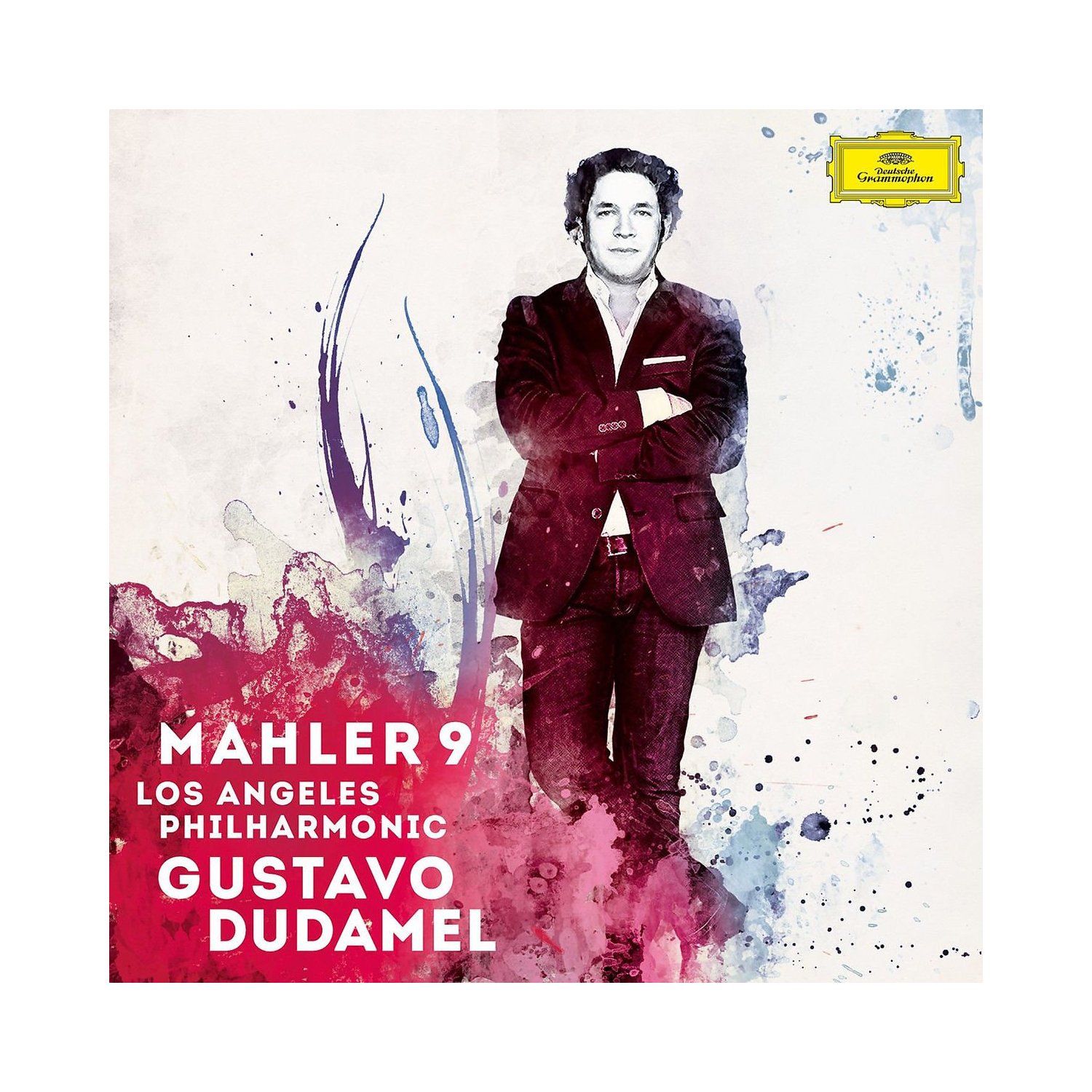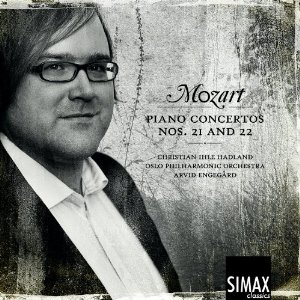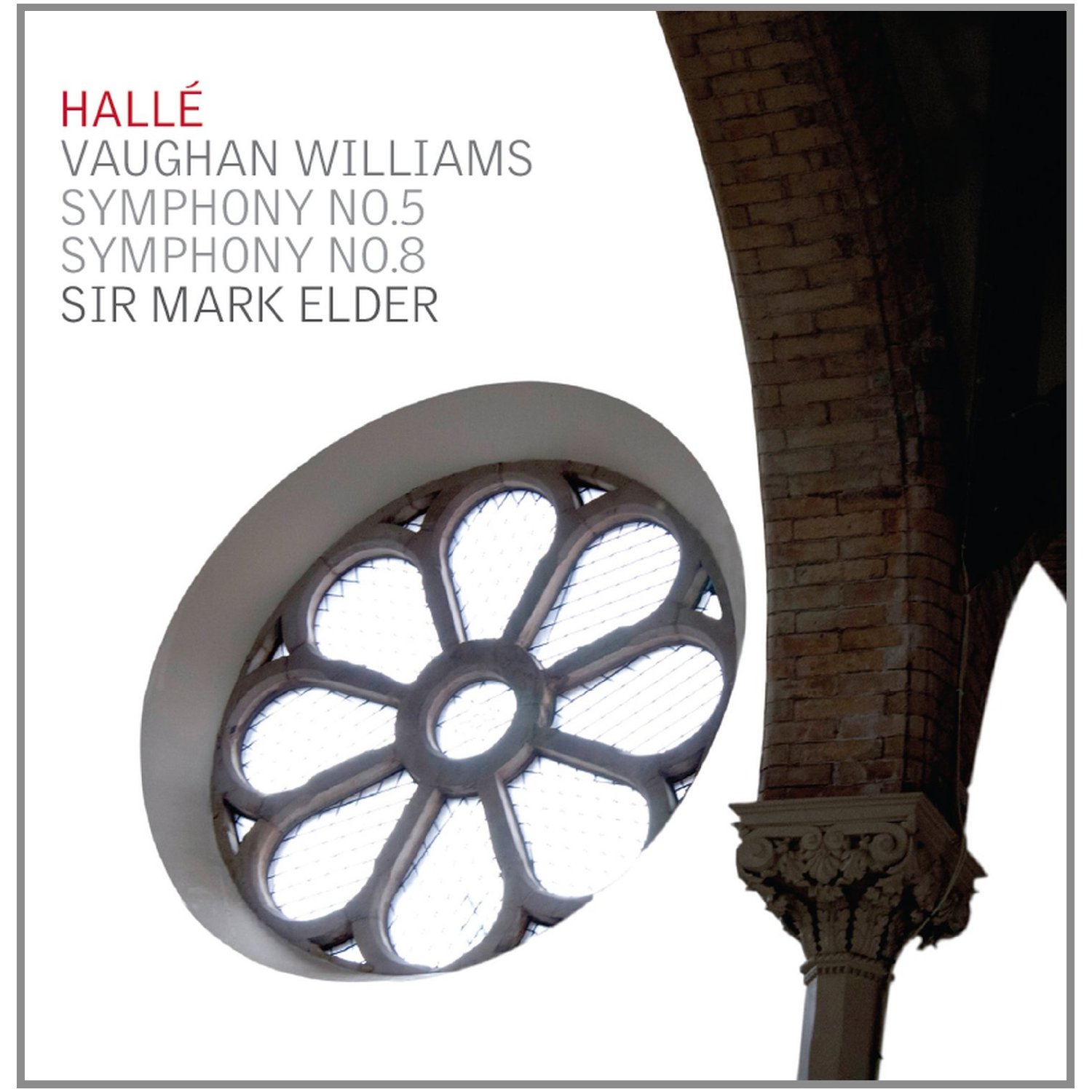Classical CDs Weekly: Mahler, Mozart, Vaughan Williams | reviews, news & interviews
Classical CDs Weekly: Mahler, Mozart, Vaughan Williams
Classical CDs Weekly: Mahler, Mozart, Vaughan Williams
Mozart from Norway and a trio of symphonies


This new, live, Mahler 9 sounds impressive – microphones are closely placed and you really feel in the thick of things. Dudamel’s intakes of breath are clearly audible but not intrusive. His first movement is outstanding. The timings are expansive, but the pace doesn’t slacken. Each precipitous climax is paced with mature skill, the tension cannily ratcheted up. There are moments when you genuinely think that it’ll all end happily, making the third, funereal crisis a shocker, Dudamel’s raucous trombones putting paid to any optimism. There’s more to this piece than bleak nihilism, and the symphony’s tenderness and sweetness are well expressed, brilliantly so as the first movement’s nostalgic principal theme sings out for the last time. It’s really, really good, and Mahler anoraks will fondly recall Giulini’s similarly broad 1970s recording.
Mahler’s easily overlooked inner movements shine here. There’s plenty of earthy affection and humour in Dudamel’s ländler, every woodwind chirrup and bassoon fart pointed with delectable care. The Rondo Burlesque’s energy is as gleeful as it is sardonic, and superbly played. Perhaps the closing Adagio is a little less affecting; beautifully controlled and sculpted but somehow lacking the emotional punch of Abbado’s sublime recent DVD account. Dudamel’s final minutes are calm, consolatory, but not tear-jerking. Orchestral playing is superb.
Watch Gustavo Dudamel rehearse Mahler 9 with the LA Phil:

This immaculately produced disc contains scintillating readings of two genial Mozart piano concertos. Ihle Hadland’s polished, witty playing suits the music’s character perfectly. Marvellous too to have both works accompanied so richly by a downsized Oslo Philharmonic under Arvid Engegård. Period-performance purists should listen carefully to the orchestral winds and horns in K482 and reflect upon what they might be missing. The Oslo players are fabulous, particularly a pair of fruity bassoons – characterful when issuing their riposte to the orchestra’s opening flourish, later cheekily embellishing the Rondo’s main theme. Hadland plays a first movement cadenza provided by Britten for Sviatoslav Richter. Stylistically it doesn’t quite fit, but it’s a fascinating listen, at one point lurching boldly into the 20th century before neatly reassuming Mozartian garb.
Hadland doesn’t undersell either concerto’s grandeur. K467’s first movement has just the right amount of pomp and wit. The over-familiar slow movement, used by a thousand telephone call centres, is played at a flowing tempo. There’s a sonorous plucked bass, and the piano line sings. Hadland's last movement sparkles. All is invigorating, never sentimental. Sublime, in other words.

Vaughan Williams’s outwardly serene Symphony no 5 is a difficult work to get right. In sloppy hands it can suggest a turgid sermon by an ageing rural clergyman. All that moseying around in hazy D major can soon become distinctly tedious. Which is why Sir Mark Elder’s recording does succeed; he manages to inject a hint of drama into the static opening movement and brings the Scherzo to life, its pale wind phrases floated over frenetic, gossamer string writing. This Romanza’s cor anglais solo is sweetly played, and the Passacaglia’s climax sounds like a choice moment from a certain ballet score composed by Vaughan Williams’s one-time teacher Ravel.
The late Symphony no 8 is an underrated charmer of a piece, premiered by this orchestra in 1956. Many of the Hallé‘s players were distinctly underwhelmed by the work’s modest dimensions, coming soon after the epic Sinfonia Antarctica. Elder plays up the symphony’s offbeat battiness, the inner movements nicely showcasing this orchestra’s wind and string sections in succession. An ensuing, percussive Toccata will have you either scratching your head or skipping round the room in delight. It’s wonderful – trust me.
Buy
Explore topics
Share this article
The future of Arts Journalism
You can stop theartsdesk.com closing!
We urgently need financing to survive. Our fundraising drive has thus far raised £49,000 but we need to reach £100,000 or we will be forced to close. Please contribute here: https://gofund.me/c3f6033d
And if you can forward this information to anyone who might assist, we’d be grateful.

Subscribe to theartsdesk.com
Thank you for continuing to read our work on theartsdesk.com. For unlimited access to every article in its entirety, including our archive of more than 15,000 pieces, we're asking for £5 per month or £40 per year. We feel it's a very good deal, and hope you do too.
To take a subscription now simply click here.
And if you're looking for that extra gift for a friend or family member, why not treat them to a theartsdesk.com gift subscription?
more Classical music
 Hallé John Adams festival, Bridgewater Hall / RNCM, Manchester review - standing ovations for today's music
From 1980 to 2025 with the West Coast’s pied piper and his eager following
Hallé John Adams festival, Bridgewater Hall / RNCM, Manchester review - standing ovations for today's music
From 1980 to 2025 with the West Coast’s pied piper and his eager following
 Kaploukhii, Greenwich Chamber Orchestra, Cutts, St James's Piccadilly review - promising young pianist
A robust and assertive Beethoven concerto suggests a player to follow
Kaploukhii, Greenwich Chamber Orchestra, Cutts, St James's Piccadilly review - promising young pianist
A robust and assertive Beethoven concerto suggests a player to follow
 Robin Holloway: Music's Odyssey review - lessons in composition
Broad and idiosyncratic survey of classical music is insightful but slightly indigestible
Robin Holloway: Music's Odyssey review - lessons in composition
Broad and idiosyncratic survey of classical music is insightful but slightly indigestible
 Classical CDs: Wolf-pelts, clowns and social realism
British ballet scores, 19th century cello works and contemporary piano etudes
Classical CDs: Wolf-pelts, clowns and social realism
British ballet scores, 19th century cello works and contemporary piano etudes
 Bizet in 150th anniversary year: rich and rare French offerings from Palazzetto Bru Zane
Specialists in French romantic music unveil a treasure trove both live and on disc
Bizet in 150th anniversary year: rich and rare French offerings from Palazzetto Bru Zane
Specialists in French romantic music unveil a treasure trove both live and on disc
 Scottish Chamber Orchestra, Ibragimova, Queen’s Hall, Edinburgh review - rarities, novelties and drumrolls
A pity the SCO didn't pick a better showcase for a shining guest artist
Scottish Chamber Orchestra, Ibragimova, Queen’s Hall, Edinburgh review - rarities, novelties and drumrolls
A pity the SCO didn't pick a better showcase for a shining guest artist
 Kilsby, Parkes, Sinfonia of London, Wilson, Barbican review - string things zing and sing in expert hands
British masterpieces for strings plus other-worldly tenor and horn - and a muscular rarity
Kilsby, Parkes, Sinfonia of London, Wilson, Barbican review - string things zing and sing in expert hands
British masterpieces for strings plus other-worldly tenor and horn - and a muscular rarity
 From Historical to Hip-Hop, Classically Black Music Festival, Kings Place review - a cluster of impressive stars for the future
From quasi-Mozartian elegance to the gritty humour of a kitchen inspection
From Historical to Hip-Hop, Classically Black Music Festival, Kings Place review - a cluster of impressive stars for the future
From quasi-Mozartian elegance to the gritty humour of a kitchen inspection
 Shibe, LSO, Adès, Barbican review - gaudy and glorious new music alongside serene Sibelius
Adès’s passion makes persuasive case for the music he loves, both new and old
Shibe, LSO, Adès, Barbican review - gaudy and glorious new music alongside serene Sibelius
Adès’s passion makes persuasive case for the music he loves, both new and old
 Anja Mittermüller, Richard Fu, Wigmore Hall review - a glorious hall debut
The Austrian mezzo shines - at the age of 22
Anja Mittermüller, Richard Fu, Wigmore Hall review - a glorious hall debut
The Austrian mezzo shines - at the age of 22
 First Person: clarinettist Oliver Pashley on the new horizons of The Hermes Experiment's latest album
Compositions by members of this unusual quartet feature for the first time
First Person: clarinettist Oliver Pashley on the new horizons of The Hermes Experiment's latest album
Compositions by members of this unusual quartet feature for the first time

Add comment